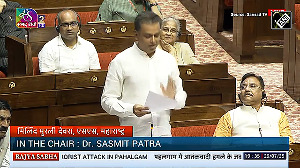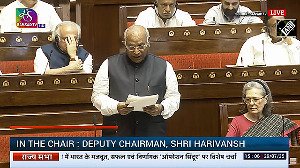The drug that it would supply is called Olanzapine, used to treat schizophrenia and bipolar disorder.

Hyderabad-based Dr Reddy's Laboratories (DRL) is the first Indian company to get approval for supplying generic drugs to China's public hospitals.
It was among three bidders, the other two being Chinese companies.
The drug that it would supply is called Olanzapine, used to treat schizophrenia and bipolar disorder.
This is part of a plan by China's government for a nationwide experiment to change their drug procurement policy, to cut the cost of generic medicines.
The trial began last December, in 11 cities, with drug makers asked to bid for supply of 25 common generic drugs to hospitals.
Dr Reddy's had not responded to a request for comments at the time of going to press.
Deepak Malik, analyst with Edelweiss, said the opportunity was a small one, at $ 20-30 million, but a step forward for the company in the Chinese market.
"This definitely boosts their presence, where it emerges now as a serious player," he said.
DRL's share price has gained about 11 per cent since its August low, on improving fundamentals.
It is now the first Indian company and the second international generics one (after Sandoz) to successfully participate in a Chinese bidding process.
The overall revenue gain for the Olanzapine contract could be $10-30 million, depending on market share gain, say analysts at Nomura.
More important, though, is the ability to participate in other such tenders, more important for future prospects.
Another analyst noted: "The Chinese government is focussed on reducing spending on generic drugs.
"This has made many global drug majors re-think their China strategy. AstraZeneca had to cut its cancer drug price by 70 per cent or so last December.
"Similarly, prices of some common blood pressure medications had fallen recently.
"This is a good time for Indian players to raise their presence in the $ 137-billion Chinese market. Players like DRL have early-mover advantage."
Procurement prices in government tenders for hospitals are already lower by 20-25 per cent.
Meanwhile, DRL has expanded its China team and is conducting bio-studies there.
These take around a year and analysts say that from filing to approval, it can take 12-18 months.
"In China, DRL is growing in strong double-digit (annually).
"It has already earmarked 70 products to be filed over three–four years," Malik said.
DRL is also in the process of expanding the capacity of a plant there with Kunshan Rotam.
Edelweiss said, "Currently, DRL owns 51.3 per cent interest in its joint venture (JV) with Rotam but does not consolidate sales because board seats are divided 50:50.
"In the future, if DRL acquires a higher share of voting board seats, the company will consolidate, using the acquisition method."
The JV has a sales and marketing team covering 5,000 hospitals in China.
In the first quarter of 2019, DRL got approval for a $ 1.6 bn anti-blood clotting drug (Clopidogrel) from the Chinese regulator.
This was after a 11-year wait and would be DRL's biggest product in China in terms of addressable market.
The drug is now undergoing generic equivalent assessment (China requires drug makers to conduct bio-equivalence studies).
It is used primarily to prevent blood clots and help in related cardio-vascular problems. Product launch is still some way off.
China is the world's second largest single-country pharmaceutical market, after America.
According to estimates, a fourth of drugs by value to Chinese hospitals are supplied by companies outside of China.
China is undergoing some market-friendly reforms which will expedite the generic approval timelines.
These typicall took seven to eight years and the government wished to hasten this.
In recent months, approvals for companies from outside China have increased, say analysts.
Growth in China remains important for DRL. It faces headwinds in the US market, with pricing pressure.
Dr Reddy’s has been re-working its US strategy, selling loss-making proprietary products, cutting costs and focusing on niche products.
Photograph: Reuters











